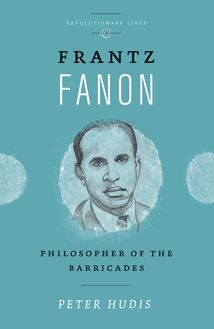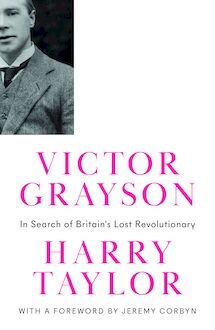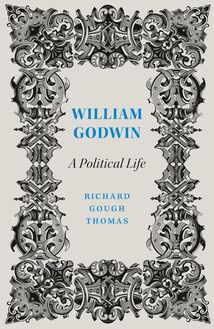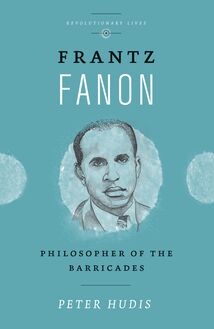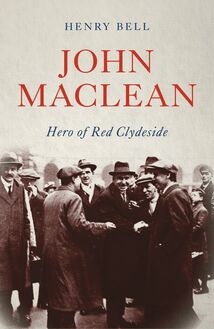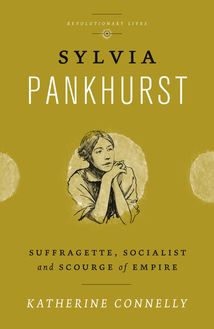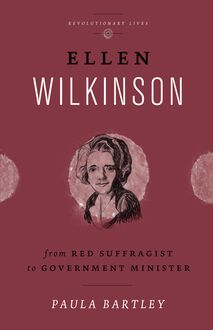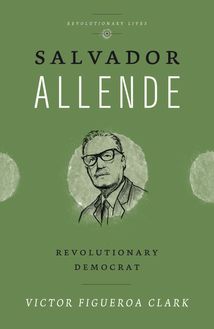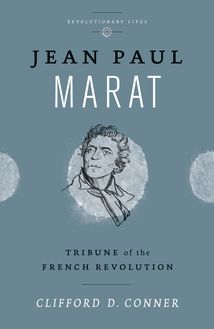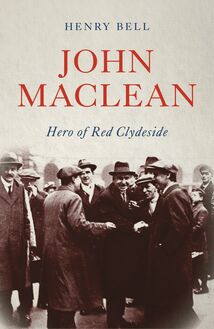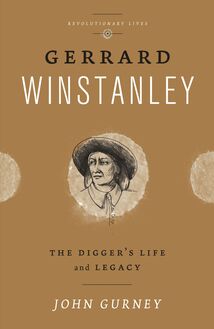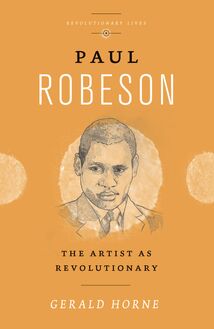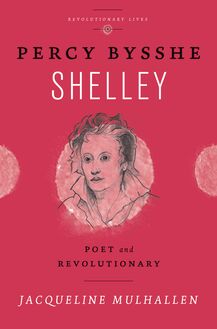-
 Univers
Univers
-
 Ebooks
Ebooks
-
 Livres audio
Livres audio
-
 Presse
Presse
-
 Podcasts
Podcasts
-
 BD
BD
-
 Documents
Documents
-
- Cours
- Révisions
- Ressources pédagogiques
- Sciences de l’éducation
- Manuels scolaires
- Langues
- Travaux de classe
- Annales de BEP
- Etudes supérieures
- Maternelle et primaire
- Fiches de lecture
- Orientation scolaire
- Méthodologie
- Corrigés de devoir
- Annales d’examens et concours
- Annales du bac
- Annales du brevet
- Rapports de stage
La lecture à portée de main
Vous pourrez modifier la taille du texte de cet ouvrage
Découvre YouScribe en t'inscrivant gratuitement
Je m'inscrisDécouvre YouScribe en t'inscrivant gratuitement
Je m'inscrisEn savoir plus
Vous pourrez modifier la taille du texte de cet ouvrage
En savoir plus

Description
Steeped in conspiracy, scandal and socialism – the disappearance of radical icon Victor Grayson is a puzzle that’s never been solved. A firebrand and Labour politician who rose to prominence in the early twentieth century, Grayson was idolised by hundreds of thousands of Britons but despised by the establishment. After a tumultuous life, he walked out of his London apartment in September 1920 and was never seen again.
After a century, new documents have come to light. Fragments of an unpublished autobiography, letters to his lovers (both men and women), leading political and literary figures including H.G. Wells and George Bernard Shaw, and testimonies from members of the Labour elite such as Clement Attlee have revealed the real Victor Grayson. New research has uncovered the true events leading up to his disappearance and suggests that he was actually blackmailed by his former Party.
In a time when homosexuality was illegal, and socialism an international threat to capitalism, Grayson was a clear target for those wanting to stamp out dissent. This extraordinary biography reinstates to history a man who laid the foundations for a whole generation of militant socialists in Britain.
Illustrations
Foreword by Jeremy Corbyn
Introduction
1. The Boy from Liverpool
2. The Student Revolutionary
3. The By-Election
4. ‘The Boy Who Paralysed Parliament’
5. Member for the Unemployed
6. ‘England’s Greatest Mob Orator’
7. Revolution Delayed
8. The Battle for a Socialist Party
9. More Than Just a ‘Cheap Orator’
10. A Taste of War
11. To Passchendaele
12. On Lloyd George’s Service
13. Towards the Truth
Notes
Bibliography
Acknowledgements
Index
Sujets
1914-1918
Gay Studies
LGBTQ+ Studies
Political Ideologies
Political
LGBTQ+
Historical
HISTORY
POLITICAL SCIENCE
Lettres et linguistique
Reino Unido
Passchendaele
Communism
Revolutionary
Biography
World War I
LGBT history
James Larkin
Victor Grayson
Horatio Bottomley
Fenner Brockway, Baron Brockway
Jeremy Corbyn
British Socialist Party
Manny Shinwell, Baron Shinwell
True crime
Independent Labour Party
Herbert Morrison
Liberal Party
General officer
Ireland
Military
20th century
United Kingdom
Socialism
Politics
History of Europe
Stephen Ireland
Great Britain
Passendale
General
Ramsay MacDonald
David Lloyd George
Autobiography
Parti travailliste indépendant
Kennington
Hilaire Belloc
Sylvia Pankhurst
Communisme
Labour Party
Clement Attlee
G. K. Chesterton
George Bernard Shaw
Manchester
Liverpool
Winston Churchill
Parti libéral
H. G. Wells
Première Guerre mondiale
Socialisme
Royaume-Uni
Europe
Informations
| Publié par | Pluto Press |
| Date de parution | 20 août 2021 |
| Nombre de lectures | 0 |
| EAN13 | 9780745343990 |
| Langue | English |
Informations légales : prix de location à la page 0,0500€. Cette information est donnée uniquement à titre indicatif conformément à la législation en vigueur.
Extrait
Victor Grayson
Victor Grayson was a socialist firebrand and trailblazer. The leftist equivalent of a spectacular firework, he blazed gloriously, but briefly, before falling to earth - and from grace. This is a gripping account of his spectacular political rise, challenge to the cosy Labour establishment, bizarre ideological volte-face and sudden, never solved, disappearance.
-Peter Tatchell, human rights defender
Wonderful.
-Jeremy Corbyn, former leader of the Labour party
Remarkable ... cuts through the mystery and fabrication that has surrounded Grayson s tumultuous life and brings us a step closer to the true story of one of the most renowned socialist politicians of his generation.
-Dan Carden MP
Casts a new light on its fascinating subject.
-Dr Kevin Hickson, Senior Lecturer in British Politics, University of Liverpool
A fresh and lively portrait of Victor Grayson built on sound research and archival discoveries.
-David Clark (Lord Clark of Windermere), former Colne Valley MP and author of Victor Grayson: The Man and the Mystery
Delves into Labour s most fascinating cold case to produce a lively and compelling story of a working class hero.
-Paul Mason, author of How to Stop Fascism
Victor Grayson
In Search of Britain s Lost Revolutionary
Harry Taylor
Foreword by Jeremy Corbyn
First published 2021 by Pluto Press
345 Archway Road, London N6 5AA
www.plutobooks.com
Copyright Harry Taylor 2021
The right of Harry Taylor to be identified as the author of this work has been asserted in accordance with the Copyright, Designs and Patents Act 1988.
British Library Cataloguing in Publication Data
A catalogue record for this book is available from the British Library
ISBN 978 0 7453 4398 3 Hardback
ISBN 978 0 7453 4401 0 PDF
ISBN 978 0 7453 4399 0 EPUB
ISBN 978 0 7453 4400 3 Kindle
This book is printed on paper suitable for recycling and made from fully managed and sustained forest sources. Logging, pulping and manufacturing processes are expected to conform to the environmental standards of the country of origin.
Typeset by Stanford DTP Services, Northampton, England
Simultaneously printed in the United Kingdom and United States of America
Contents
Illustrations
Foreword by Jeremy Corbyn
Introduction
1 The Boy from Liverpool
2 The Student Revolutionary
3 The By-Election
4 The Boy Who Paralysed Parliament
5 Member for the Unemployed
6 England s Greatest Mob Orator
7 Revolution Delayed
8 The Battle for a Socialist Party
9 More Than Just a Cheap Orator
10 A Taste of War
11 To Passchendaele
12 On Lloyd George s Service
13 Towards the Truth
Notes
Bibliography
Acknowledgements
Index
List of Illustrations
1. A young Victor Grayson before his election to Parliament holding a copy of the Clarion under his arm.
2. Victor Grayson s Colne Valley by-election address.
3. Just a section of the huge crowd waiting to hear the result from the by-election count.
4. The Colne Valley Labour League after the by-election victory in 1907.
5. Artist s impression of Grayson s protest which saw him suspended from the House of Commons.
6. When he could find no audience in the House of Commons, Grayson toured the country preaching Socialist Unity . Newcastle, 1909.
7. Grayson places the Labour crown on his head as MacDonald, Glasier, Snowden and Hardie exit the stage.
8. Grayson with admirers in 1909. He was always well dressed, whatever the occasion.
9. Grayson giving a fiery speech at the London demonstration against the execution of Spanish educationist, Ferrer.
10. No Right to Work - No Right to Live. A rare surviving election leaflet from Grayson s January 1910 General Election campaign in Colne Valley.
11. Grayson speaking from a Clarion van at the opening of his last-minute campaign in Kennington during the freezing December 1910 General Election.
12. The card which Grayson s small but dedicated band of supporters handed to voters on polling day.
13. The classic portrait of Victor Grayson.
14. The actress, Ruth Grayson, adopting her husband s standard salutation thine fraternally .
15. Grayson posing in his full ANZAC uniform in 1917, before the Battle of Passchendaele.
16. The mysterious envelope from 1930 given to Derek Forwood in the early 1960s by friends of Grayson who believed it held the answer to Grayson s disappearance.
Foreword
Victor Grayson, his life, his speeches, his inspiration and his apparent disappearance are the stuff of Labour movement legends. Almost 120 years after the Colne Valley by-election, the stirrings and importance of that campaign are still alive in the Labour movement s rich lexicon of great achievements.
Grayson, born into poverty in Liverpool, worked in factories and later enrolled into Church missionary work. Despite an early speech impediment, he learned to speak and hold a crowd for street Christianity, and later for socialism. In Grayson s eyes he saw them as part of the same story.
His life passage saw so many similarities to that of Keir Hardie, who was a Church and temperance orator and later trade union and Labour organiser. Victor Grayson and Hardie were never close and had a tense and difficult relationship. However, their lives were so similar, both born into wrenching poverty, then embracing religion, temperance, trade unionism, Labour movement and eventually Parliament.
Grayson based his life in Manchester where he was studying theology for a religious career but was increasingly in demand as a socialist speaker. His travels all around the North of England gave him a unique basis of support in Colne Valley. When a long-predicted by-election took place in 1907, Grayson should have been the Labour candidate, but a bureaucratic and very typical Labour argument over rules and interference from the Independent Labour Party national office resulted in him not being the official candidate but supported by Labour. Keir Hardie lent his support, but was always critical. The argument between local selection of candidates and national interference by the Party machine is not new.
Grayson s dashing style, endless arguments with trade union leaders - who preferred to deal with the Liberals - and ability to excite popular support, won him a place in the hearts of the people of Colne Valley and the eternal jealousy of the then leading lights of the movement. His famous campaign embraced the cause of women s right to vote and a clear and straightforward socialist message. He used methods of community organising that made the official Labour machinery nervous as his appeal was the street meeting with the enthusiasm of music and presence. Massive meetings of people, many of whom were disenfranchised by being women or lacking the qualification to vote, meant that he won, very narrowly, in July 1907.
His first foray after the historic election was to go not to London, but Belfast, with Jim Larkin to support the dock strike and then raise the cause in Parliament. Parliamentary life had its ups and downs. The Parliamentary Labour Party never accepted him and his disruption of Parliament in support of the unemployed did not bring him friendship or support in the Tea Room or in the House. But it did make him a big name in the Labour movement and his amazing capacity for popular writing gave him a unique advantage over the dour, establishment-leaning, Labour figures.
As with many a famous and sought after figure, his cheery facade was hiding a lonely person. His stupendous energy sent him on a never-ending round of trains and meetings and urgently written articles, but he never had the time or support to develop any kind of theoretical basis for his socialism.
Human frailties increasingly affected him as he became a prolific whisky drinker. This and the refusal of the Labour Party to fully embrace him meant he fought a less effective defence of Colne Valley in 1910 and lost.
Only three years in Parliament still made him a legend. Children, including the later TUC General Secretary, Vic Feather, were named after him. There was genuine and huge love for him. The dashing young orator whose lips could bring such messages of joy to grotesquely exploited people in mills and factories. Grayson had made a huge impact but always seemed, somehow, to miss the boat, in creating the kind of socialist movement he dreamt of. The arguments during 1907 in Colne Valley undoubtedly robbed Labour of a future leader whilst his refusal to challenge the Independent Labour Party leaders in 1909 left him an outsider.
At a distance of over a century, the intensity of debate about the Labour Party and its very existence in the period up to the First World War seems odd. Grayson helped form the British Socialist Party (which a decade later was the basis of the Communist Party), but played no part in it as he was outmanoeuvred. He was still a much sought after speaker, essentially without a party, but always preaching socialism and political trade unionism.
The First World War changed everything. Hardie was against war and was destroyed by it. Grayson, then an outcast, became a different figure in the eyes of the movement, and the previously very hostile media. He supported the war and became a recruiting sergeant. His use of a clever mixture of class rhetoric and demand for better working conditions after the war helped to gain working-class support for the war. His old adversary, Churchill, saw the value of his oratory and sent him to Australia and New Zealand. He joined the New Zealand forces in response to a challenge at a public meeting to his pro-war credentials. He duly served and was badly injured in Passchendaele. Despite the sight of death and destruction he became a useful tool of the establishment alongside the former suffragette, Emmeline Pankhurst.
How, one asks, could a man born into poverty, who was such a brilliant and revolutionary speaker, who could challenge the very structures of society, become seduced
-
 Univers
Univers
-
 Ebooks
Ebooks
-
 Livres audio
Livres audio
-
 Presse
Presse
-
 Podcasts
Podcasts
-
 BD
BD
-
 Documents
Documents
-
Jeunesse
-
Littérature
-
Ressources professionnelles
-
Santé et bien-être
-
Savoirs
-
Education
-
Loisirs et hobbies
-
Art, musique et cinéma
-
Actualité et débat de société
-
Jeunesse
-
Littérature
-
Ressources professionnelles
-
Santé et bien-être
-
Savoirs
-
Education
-
Loisirs et hobbies
-
Art, musique et cinéma
-
Actualité et débat de société
-
Actualités
-
Lifestyle
-
Presse jeunesse
-
Presse professionnelle
-
Pratique
-
Presse sportive
-
Presse internationale
-
Culture & Médias
-
Action et Aventures
-
Science-fiction et Fantasy
-
Société
-
Jeunesse
-
Littérature
-
Ressources professionnelles
-
Santé et bien-être
-
Savoirs
-
Education
-
Loisirs et hobbies
-
Art, musique et cinéma
-
Actualité et débat de société
- Cours
- Révisions
- Ressources pédagogiques
- Sciences de l’éducation
- Manuels scolaires
- Langues
- Travaux de classe
- Annales de BEP
- Etudes supérieures
- Maternelle et primaire
- Fiches de lecture
- Orientation scolaire
- Méthodologie
- Corrigés de devoir
- Annales d’examens et concours
- Annales du bac
- Annales du brevet
- Rapports de stage

